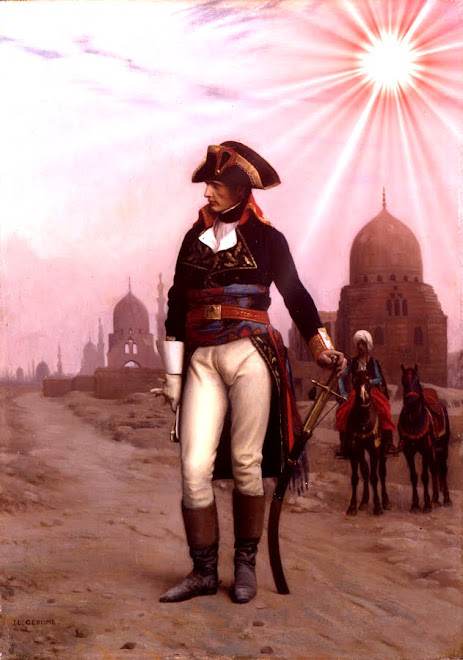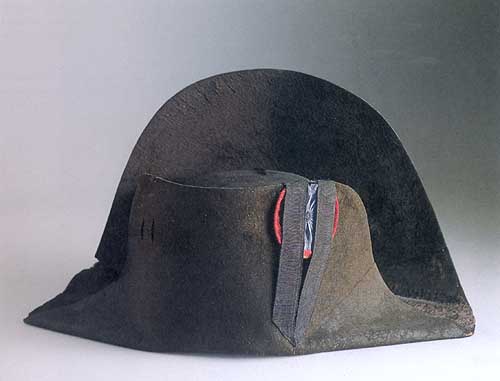NAPOLEONIC PICTURES
There are literally thousands of paintings and drawings depicting the great men and the major events that dominated and shaped Europe during Napoleon's rule. Many are new to me and their freshness only adds to their appeal. The work of the finest painters of the First Empire, whether they themselves lived through it or not, are the silent background to the stirring events that we can read of in the history books. In the late C20th and the early C21st, it is often a half-forgotten song or piece of music that moves the soul or evokes within us a sense of nostalgia, certainly for those of us who lived through the '60s and the '70s when Pop music was a constant frame for the daily events in our own lives. The paintings chosen below are but a minute fraction of what there is on offer via the Internet and I urge you delve around yourselves to see what pictorial nuggets you can unearth.
THAT OTHER HISTORY
(THE ONE NOT WRITTEN BY NAPOLEON'S DETRACTORS)
As Colonel John Elting has pointed out, the Russians, as well as the British, had attempted to invade France long before Napoleon thought of counter-invading those two countries himself. Britain and Russia, along with the Prussians and the Austrians, had designs upon Paris years before Napoleon declared himself Emperor. Had they been victorious in 1799, the Allies would probably have dismembered France as Poland had been partitioned in the infamous and unsavoury pacts between Prussia, Russia and Austria from 1772 to 1795 - after which Poland no longer existed as a separate country. So, let he who is without guilt throw the first stone - just who really was the aggressor during those turbulent years?
A self-serving clique of aristocrats dominated the political scene in England and they were determined to glean as much wealth as possible from their own people as well as the French and any other country that took their fancy. The soldiers of the British Army were but chaff to be used in order to serve that end. As Napier pointed out, only the aristocrats like M'Lud Wellington and his ilk were allowed to claim victory and the riches that went with it - the common soldier was totally expendable, to be flogged or hanged by his own 'superiors' or to be killed by the supposed French aggressors.The British took this callously insouciant attitude to extremes in 1807 when the Royal Navy attacked the neutral country of Denmark and bombarded Copenhagen with shells and the new Congreve rockets - the weapons of mass destruction at their disposal at the time. Over 2,000 civilians were murdered in this barbaric act, an unprovoked attack orchestrated in order to steal or destroy the Danish men-of-war that were the pride of their country. After this mass murder (during which Wellington had a tremendous victory over the clog-wearing Danish militia), the spoils were taken back to England and divvied up for those brave men in the Royal Navy who knew how to kill people in their beds. By far the greatest chunks of prize money went to the officers, the common sailor received far less, such was the inequality fostered and perpetuated by a clique of corrupt politicians in Parliament.
Napoleon, in contrast, was often very generous, even to those countries that attacked France time after time. As the historian Runciman has said, the Emperor could easily have removed Francis of Austria from his throne following Austrian aggression in 1805, or Frederick William of Prussia after the much-vaunted Army of Frederick the Great was utterly crushed in 1806 by Napoleon and Davout at Jena and Auerstadt - again after Prussian aggression. Similarly in 1807 after Russia's defeat at Friedland, Napoleon could have seized huge tracts of territory, yet at the Treaty of Tilsit, Tsar Alexander was treated like a partner not a vanquished foe.
This is the Untold History denied a mention in most British history books.








No comments:
Post a Comment